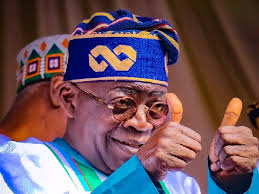Wilson Akpan, Deputy Dean of Research and Internationalisation at the University of Fort Hare in South Africa, says the fault lines in Nigeria are fuelled by ethnic and political entrepreneurs who fear they will lose out once unity is achieved.
“Do not get me wrong, these people (ethno-political entrepreneurs) contribute to the growth and development of the society, they are well respected and notable.
“But they also ensure the perpetuity of tension and distrust as a way of keeping relevance and ensuring that they are not out of business,” Akpan argued at the Annual Nigeria Dialogue at Rhodes University in Grahamstown, South Africa.
“They are those who feast on peoples’ misery in the society and promote ethnic, regional and religious sentiments over national interests.”
A statement issued by Nelson Odume, Coordinator of the Annual Nigeria Dialogue and Postdoctoral Fellow at the Institute of Water Resources at the university, disclosed that the theme for this year’s dialogue was ‘Building bridges of peaceful co-existence across the Niger – the role of education and youth development’.
Akpan emphasised that the theme suggests that there are multiple fault lines in Nigeria, which include geographical, religious, regional, political, and ethnic.
He wondered if education and youth development can contribute to building bridges of co-existence and fostering integration and harmonious relationships among the diverse groups in Nigeria.
He acknowledged that some efforts have been made in the past through the compulsory one-year National Youth Service Corps (NYSC) for graduates to foster peace, integration, unity, and peaceful co-existence, but insisted this has failed to achieve the objectives.
Akpan said the education system does not reflect the realities of the Nigerian society, and sought its urgent overhaul as well as the introduction of a civic, moral, and value-driven system that incorporates needs and developmental realities.
“An education system that fosters peace, integration, and mutual understanding is needed right from the primary school level through tertiary.”
Akpan was later joined by Eric Igbinigie and Aminu Usman in an interactive panel discussion on the theme of the dialogue.
Igbinigie, Senior Environmental Consultant with Coastal and Environmental Services, said Nigeria can only overcome challenges if its components work in unity.
Usman added that the tensions in Nigeria are intra rather than inter-regional, and advocated that education can be used as a tool for integration once it is not politicised.
Rhodes University International Office Director, Orla Quinlan, said the school places a high premium on internationalisation, with one-third of students drawn from several countries.
“Here at Rhodes University, we value internationalisation and although there is still no coherent policy about [it] in South Africa, Rhodes has a rich culture of internationalisation, which has helped the university position itself as one of the leading institutions on the African continent,” she explained.












